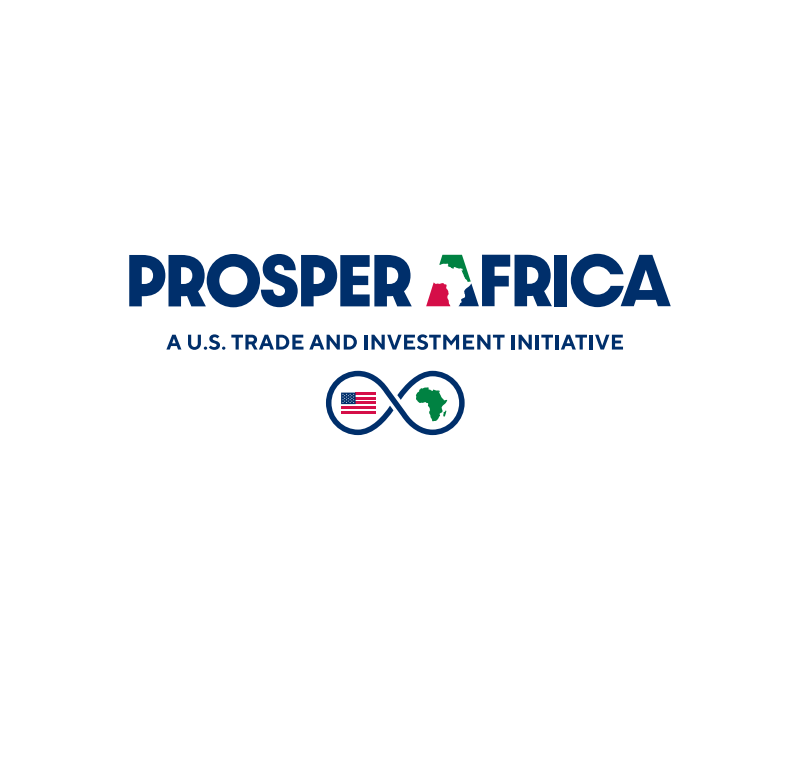 USAID
USAID
Prosper Africa: A Strategy for Securing the Critical Mineral and Rare Earth Supply Chain
As the renewable energy transition drives the demand for critical minerals and rare earth metals, the world is increasingly looking to Africa, as Africa represents substantial opportunities for economic development, particularly in the mining sector. American investment into African development has been historically inconsistent and largely limited. The U.S. has provided aid to Africa mostly through health and food programs, but there is a lack of substantial American investment into the African economy and infrastructure, as U.S. exports to Africa have declined by about 32% from 2014-2019. Generally speaking, the U.S. has provided Africa with aid, not partnership. The Prosper Africa initiative was developed to facilitate a US-African economic partnership.
In 2019, the U.S. sought to promote U.S. trade and investment into Africa with the announcement of the Prosper Africa initiative. While the initial Prosper Africa initiative had some issues, the revisions announced in July 2021 is a step in the right direction. The U.S. should do more to incorporate investments, under the framework of Prosper Africa, into the African mining sector to help secure critical mineral and rare earth supply chains as the world enters a new energy landscape.
Original Prosper Africa
In 2017, the President’s Advisory Council on Doing Business in Africa (PAC-DBIA) released a report emphasizing that efforts by U.S. companies to secure business contracts in Africa were being undermined by foreign competitors, mainly China, because the U.S. lacked a whole-of government approach. PAC-DBIA further identified China’s Belt and Road Initiative (BRI) as a potential issue, stating:
“If the U.S. government does not find a way to reverse this trend and position American firms for more streamlined operation, it will be Chinese technology, equipment, and standards that are used to close the infrastructure gap in Africa.”
However, the original initiative, while a step in the right direction, was ultimately insufficient in facilitating any meaningful investment and trade in Africa. There are two main reasons for this:
Prosper Africa did not do enough to attract companies:
Prosper Africa was designed to be a coordination mechanism to streamline U.S. agencies, reduce bureaucratic difficulties and increase access to government resources. But the main barriers to U.S investment in Africa goes beyond bureaucratic red tape. Many U.S. companies are hesitant to invest into Africa because of concerns over corruption, instability, and conflict. These concerns, combined with a general lack of experience and information in how to navigate Africa, cause companies to avoid it entirely instead focusing on Latin America and Southeast Asia. The Prosper Africa initiative does not do enough to overcome the hesitation. A streamline of government services is ineffective by itself, as there are no incentives to use those services.
Prosper Africa framed as an initiative to counter China:
When National Security Advisor John Bolton first announced the Prosper Africa initiative at an event in Mozambique in 2018, he framed it as a direct response to the BRI. This irked many African leaders, as Bolton’s speech framed African governments as victims or pawns of China, implying that they lacked agency. The framing of Prosper Africa as a strategic plan against China was worsened by the fact that the event was unattended by any Cabinet level official. Gyude Moore, the Liberian former minister of public works, stated: “The U.S. does not have the decency, the courtesy, to send a Cabinet-level official to this event.”
Prosper Africa in 2021
In July 2021, the Biden administration announced that it will “reimagine” Prosper Africa to expand U.S-African business cooperation under the priorities of the new administration. Under the renamed Africa Prosper Build Together Campaign, President Biden requested $80 million to focus on clean energy, women and equity, and transportation infrastructure. The new Prosper Africa is a step in the right direction for multiple reasons. First, the narrative of the program was changed to focus on the development of African nations and a two-way economic partnership between the U.S. and Africa. Second, there is more government financial support for the program. While $80 million is marginal compared to the Chinese investment into Africa of $60 billion, increased government financial support will do more to help U.S. companies overcome their aversion to investing in Africa. Lastly, the new program is focused on specific sectors, like clean energy infrastructure. The original initiative coordinated and streamlined U.S. agencies but did not provide any guidance on which sectors should invest in African nations or which sectors aligned with national security goals. By providing a sectoral focus or a goal like, clean energy, transportation, or health, it better motivates U.S. companies to invest in the African economy.
Sustainable Mining under Prosper Africa
The U.S. should add sustainable mining investments as a sectoral focus in the Prosper Africa Build Together Campaign. According to the 100-Day Supply Chain Review, initiated by the Biden administration, the U.S. must diversify its critical mineral and rare earth supply chain to reduce a substantial dependence on China. Furthermore, a resilient critical mineral supply chain may be vital to the future of the DoD and its ability to adapt to the clean energy transition.
There are current initiatives, like the Energy Resource Governance Initiative (ERGI), focused on a collaborative effort between the U.S. and its allies to diversify the critical mineral supply chain. However, COVID-19 has stalled many new production and manufacturing endeavors.
The economies of many African states, like Zimbabwe, South Africa, Namibia, and the Democratic Republic of Congo, are dependent on the mining sector, meaning that a healthy mining sector is critical to economic development. Including sustainable mining as a sectoral focus meets the intent of the Prosper Africa initiative, which is to build two-way economic partnerships and will help to secure U.S. critical mineral and rare earth supply chains.





